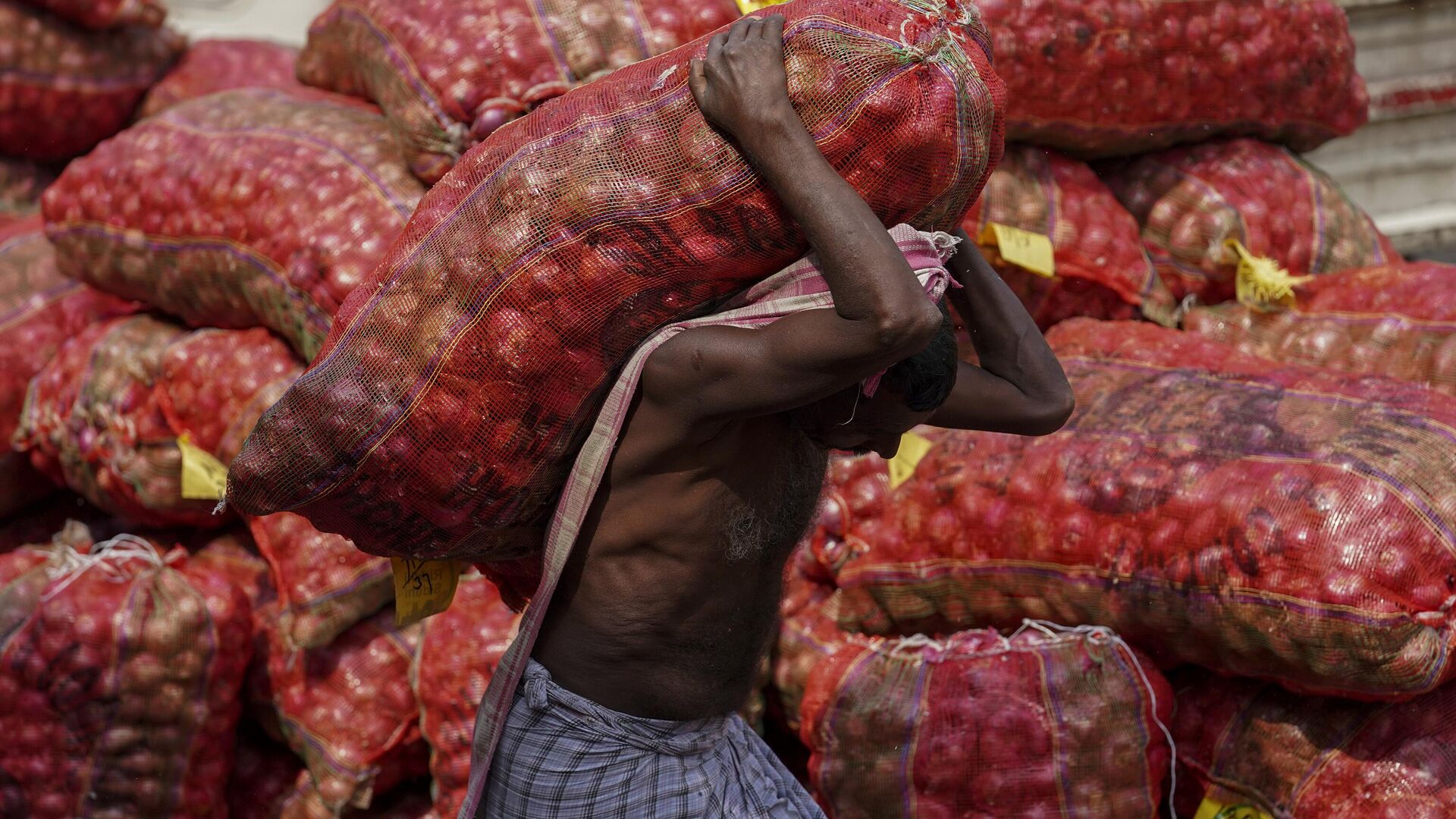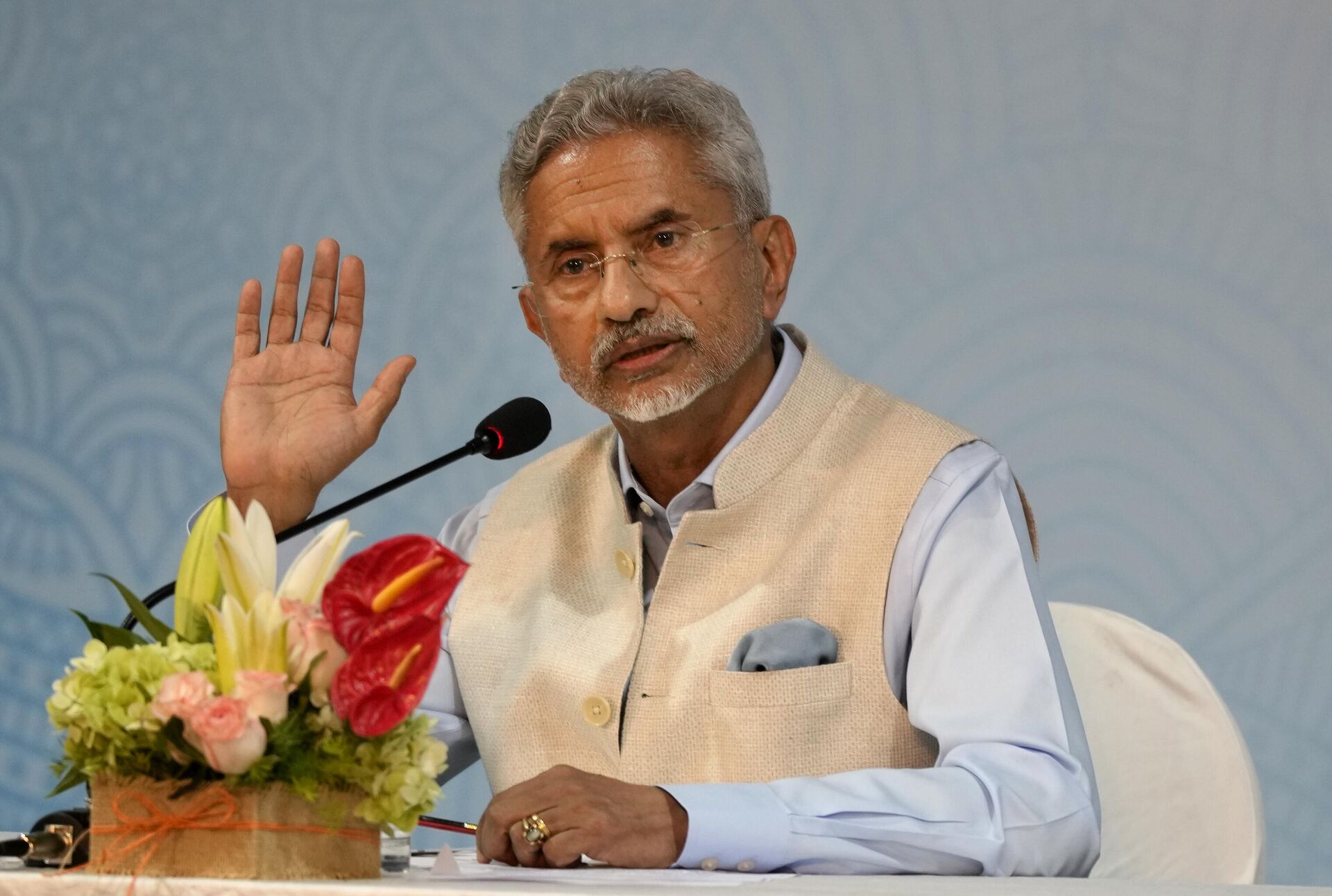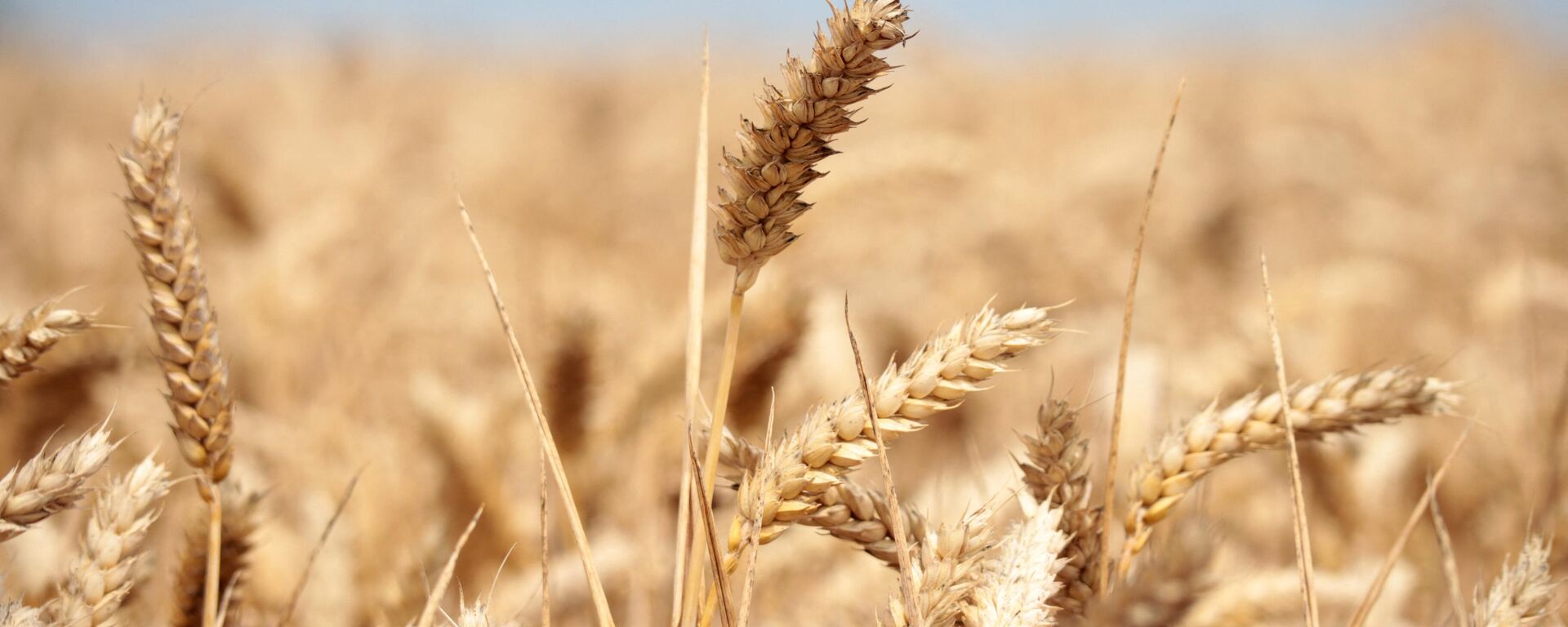https://sputniknews.in/20230827/exceptional-stress-facing-global-south-could-hit-world-economy-jaishankar-3859240.html
'Exceptional Stress' Facing Global South Could Hit World Economy: Jaishankar
'Exceptional Stress' Facing Global South Could Hit World Economy: Jaishankar
Sputnik India
The Indian External Affairs Minister (EAM), S Jaishankar, said on Sunday that the Global South was under “exceptional stress” due to food and energy crisis, high debt, trade disruptions and climate events.
2023-08-27T11:57+0530
2023-08-27T11:57+0530
2023-08-27T11:57+0530
india g-20 presidency
g-20
s. jaishankar
global south
new delhi
india
european union (eu)
us
ukraine
food
https://cdn1.img.sputniknews.in/img/07e7/03/0d/1147024_0:160:3073:1888_1920x0_80_0_0_0493de4316533eb3da39ee5edffa6e28.jpg
The Indian External Affairs Minister (EAM), S. Jaishankar, said on Sunday that the Global South was under "exceptional stress" due to the food and energy crisis, high debt, trade disruptions and climate events.Delivering a keynote address at the Business 20 (B20) Summit in New Delhi on Sunday, Jaishankar underlined that the problems facing the developing nations had been exacerbated by Covid pandemic-related disruptions and the spillover effects of the Ukraine crisis.The B20 Summit is the official dialogue forum for the businesses of the G20 countries. The B20 Summit takes place two weeks ahead of the G20 Summit in New Delhi.Highlighting that India has been advocating the concerns of Global South during its ongoing G-20 presidency, Jaishankar stated that New Delhi was "acutely conscious" of the absence of a large number of low and middle-income nations from the G20.Jaishankar said that India was "effectively practising" the mantra of “leaving no one behind” domestically as it advocating the interests of other developing nations.He noted that Indian authorities had provided "direct food support" to over 800 million citizens during the Covid pandemic. Jaishankar also stressed that over 450 million Indians were being provided with "financial support", while the government’s housing program had benefitted over 150 million Indians to date.The foreign minister also recalled that New Delhi had supplied vaccines to nearly 100 countries, most of them in the Global South, and medical supplies to nearly 150 nations during the Covid pandemic.'International System Remains Dominated by Global North'"This is naturally reflected in the composition of the G-20 as well. Perhaps, this mattered less when the globalization process appeared to offer more opportunities but as its inequities and unevenness become more apparent, the need to focus on developing countries became more compelling," the Indian foreign minister remarked.Jaishankar underscored the point that the Global South has "largely reduced to becoming a producer rather than a consumer."Highlighting the "structural issues at the heart of the predicament of Global South", Jaishankar expressed concerns over "concentration" of subsidies, technology, subsidy, human resources and strategic choices” in the developed countries.Citing the example of the Covid pandemic when New Delhi had been denied access to vaccines and raw materials from the US and EU, Jaishankar stressed that the developing nations could no longer be "at the mercy" of a few suppliers."The compulsion to create more resilient supply chains is a pressing one…", Jaishankar added.
https://sputniknews.in/20230808/what-is-indias-role-in-helping-solve-global-hunger-crisis-3472217.html
global south
new delhi
india
us
ukraine
Sputnik India
feedback.hindi@sputniknews.com
+74956456601
MIA „Rossiya Segodnya“
2023
Dhairya Maheshwari
https://cdn1.img.sputniknews.in/img/07e6/0c/13/138962_0:0:641:640_100x100_80_0_0_2cb44360dbcdf6d84bf4b299cd045917.jpg
Dhairya Maheshwari
https://cdn1.img.sputniknews.in/img/07e6/0c/13/138962_0:0:641:640_100x100_80_0_0_2cb44360dbcdf6d84bf4b299cd045917.jpg
News
en_IN
Sputnik India
feedback.hindi@sputniknews.com
+74956456601
MIA „Rossiya Segodnya“
Sputnik India
feedback.hindi@sputniknews.com
+74956456601
MIA „Rossiya Segodnya“
Dhairya Maheshwari
https://cdn1.img.sputniknews.in/img/07e6/0c/13/138962_0:0:641:640_100x100_80_0_0_2cb44360dbcdf6d84bf4b299cd045917.jpg
b20 summit, b20, jaishankar, g20 summit, g20 summit in new delhi, g20 summit venue, global south, global south summit, biden visit india, g20 summit venue, debt distress, food crisis, energy crisis, fertilizer crisis, russia ukraine news, russia ukraine war, russian fertilizer exports, india russia ties, india russia trade
b20 summit, b20, jaishankar, g20 summit, g20 summit in new delhi, g20 summit venue, global south, global south summit, biden visit india, g20 summit venue, debt distress, food crisis, energy crisis, fertilizer crisis, russia ukraine news, russia ukraine war, russian fertilizer exports, india russia ties, india russia trade
'Exceptional Stress' Facing Global South Could Hit World Economy: Jaishankar
The top Indian diplomat said that the concerns of the Global South would dominate the agenda of the upcoming G-20 Summit in New Delhi on September 9-10.
The Indian External Affairs Minister (EAM), S. Jaishankar, said on Sunday that the Global South was under "exceptional stress" due to the food and energy crisis, high debt, trade disruptions and climate events.
Delivering a keynote address at the Business 20 (B20) Summit in New Delhi on Sunday, Jaishankar underlined that the
problems facing the developing nations had been exacerbated by
Covid pandemic-related disruptions and the spillover effects of the
Ukraine crisis.
"The current focus on Global South emanates from conviction that these are countries that are truly deserving of special care. These are also societies under exceptional stress, which if left unaddressed could become a serious drag on world economy" the top Indian diplomat stated.
The
B20 Summit is the official dialogue forum for the businesses of the
G20 countries. The B20 Summit takes place two weeks ahead of the
G20 Summit in New Delhi.
Highlighting that India has been advocating the concerns of Global South during its ongoing G-20 presidency, Jaishankar stated that New Delhi was "acutely conscious" of the absence of a large number of low and middle-income nations from the G20.
"India was acutely conscious of the absence of voice of the Global South in G20, therefore Hon’ble PM decided to convene the Voice of Global South Summit to hear the voices, challenges and opportunities of 125 countries directly, and on their behalf, these have been made central to the G20 agenda," the minister said.
Jaishankar said that India was "effectively practising" the mantra of “leaving no one behind” domestically as it advocating the interests of other developing nations.
He noted that Indian authorities had provided "direct food support" to over 800 million citizens during the Covid pandemic. Jaishankar also stressed that over 450 million Indians were being provided with "financial support", while the government’s housing program had benefitted over 150 million Indians to date.
The foreign minister also recalled that New Delhi had supplied vaccines to nearly 100 countries, most of them in the Global South, and medical supplies to nearly 150 nations during the Covid pandemic.
'International System Remains Dominated by Global North'
During his speech, Jaishankar stressed that it was an "undeniable reality that the international system remains dominated by the Global North."
"This is naturally reflected in the composition of the G-20 as well. Perhaps, this mattered less when the globalization process appeared to offer more opportunities but as its inequities and unevenness become more apparent, the need to focus on developing countries became more compelling," the Indian foreign minister remarked.
Jaishankar underscored the point that the Global South has "largely reduced to becoming a producer rather than a consumer."
"Their contribution very often was to provide resources for manufacturing elsewhere. They did not only not reap full benefits of economic change, but often ended up saddled with unviable debt saddled with opaque initiatives," he noted.
Highlighting the "structural issues at the heart of the predicament of Global South", Jaishankar expressed concerns over "concentration" of subsidies, technology, subsidy, human resources and strategic choices” in the developed countries.
Citing the example of the Covid pandemic when New Delhi had been denied access to vaccines and raw materials from the US and EU, Jaishankar stressed that the developing nations could no longer be "at the mercy" of a few suppliers.
"The compulsion to create more resilient supply chains is a pressing one…", Jaishankar added.




